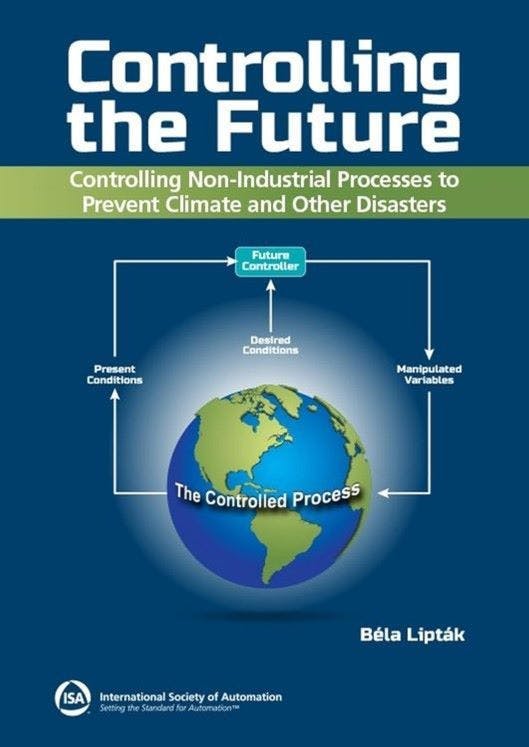It can be hard to get a firm grasp on global warming. Somewhere between alarmist views of an impending demise of humanity and denialism that an existential threat exists in the first place sits a gaping hole for meaningful discussion followed by purposeful action. So, political theatrics aside, a reality exists that global emissions from industry and consumers alike have risen dramatically over the last century-plus and, whatever the outcome, humans must devise solutions to curb emissions and create a more sustainable industrial sector.
While many books have been written about the effects of the human footprint on our planet, a common trait is they (generally) address only one or two components of the physical processes of global warming, whether it’s rising sea levels, changing weather patterns, or the technologies that can protect against harmful effects of CO2 and methane emissions. Rarely do they examine causes, effects and solutions as one all-encompassing process, including how the new cultural and business disruptor, artificial intelligence (AI), can help or hurt.
That’s what makes Controlling the Future: Controlling Non-Industrial Processes to Prevent Climate and Other Disasters by Béla Lipták (ISA) unique. Lipták, a Process Automation Hall of Fame member and regular columnist for Control, takes a process control engineer’s view of the planet’s future, and examines how the automation profession can improve control of non-industrial processes such as global warming.
He doesn’t stop there. Lipták is likewise keenly aware of the future impact of AI on the cultural environment of human life and its potential to help corral environmental threats like rising methane emissions. So, while we reach a fork in the road to the future, Lipták uses his vast experience in science and engineering to help us avoid a wrong turn that may lead us to a dead end.
And, he does so in a way that any process control engineer could love. At its core, Controlling the Future is an essay on manipulating the variables, while "loop controlling the future." Lipták argues the actuators on the control valves throttling human behavior is our own wallets. He also laments a rising generation of "button pushers in a truthless and atomized society” as accomplices to our inaction to secure a better future.
While we might not yet be on the cusp of a dystopian future envisioned by George Orwell or an AI-enabled society of robots dreamed up by Kazuo Ishiguro, Lipták points out that now is the time to leverage our process control knowledge to ensure sustainable and beneficial solutions that don’t villify new technology, but embrace its potential. He adamantly stresses that such effort requires human engagement and oversight.
Lipták doesn’t claim to have all the answers for a better future. He’s forthright that he's neither an expert specialist or an inventor. He’s an expert on the behavior of processes because he’s been practicing and teaching process control for over half a century. He uses that experience to analyze these mutivariable processes in their totality (by looking at their capacitances, inertias, accelerations, time constants, feedbacks, tipping points, integral accumulations and interactions between their component subprocesses) before predicting the overall, dynamic behavior of non-industrial process such as AI or climate change.
Lipták’s main takeaway for readers is that humans know how to fix things. He’s bullish that progress can be made on climate change if we get to work right away, pointing out that emissions would already cause the atmosphere to appear black if greenhouse gases had color, and that the weight the “stuff” we’ve put up there is greater than everything we've ever built on the planet's surface. “So, we better remember that we have less than a decade to get serious about stopping global warming, otherwise it will rise to over 2.5 °C, making the tropics unlivable and causing an unstoppable migration that could destroy civilization,” he writes.
However, Lipták is also optimistic about the future because free-market forces are already supporting efforts, as evidenced by the dropping cost of green energy and its increasing share in the total energy mix. He adds he’s optimistic because younger generations realize inaction would cause the civilization-ending migration he describes.
It’s simply time to get the process of finding viable solutions under control.
Look for more insights from Controlling the Future directly from the author in his upcoming “Lessons Learned” column in the June 2024 issue of Control.
About the Author

Leaders relevant to this article:


